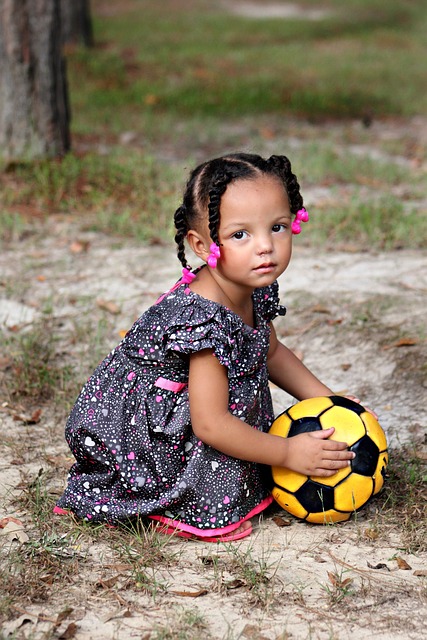Child abuse attorneys in Denver, CO face a delicate balance between upholding confidentiality to protect privacy and adhering to mandatory reporting laws for suspected child abuse or neglect. This challenge is magnified by the city's strict local laws and diverse cultural sensitivities. Skilled attorneys must navigate legal complexities, ethical guidelines, and unique case dynamics to advocate for their young clients while ensuring public safety, often advocating for exemptions to protect identities and living situations. Confidentiality plays a crucial role in encouraging victims and families to seek help without fear of exposure.
In Denver, Colorado, the delicate balance between confidentiality and mandatory reporting laws presents a complex legal and ethical dilemma, especially for child abuse attorneys. This article explores these opposing obligations, delving into the rights of individuals to privacy versus the state’s duty to protect vulnerable children. We analyze real-world scenarios where confidentiality conflicts with child welfare, offering insights for Denver’s child abuse attorneys navigating this challenging landscape. Understanding these dynamics is crucial for effective advocacy and ensuring justice for all involved.
Understanding Confidentiality: The Right to Privacy for All Individuals
In the context of child abuse, understanding confidentiality is paramount as it safeguards the right to privacy for all individuals involved. This principle is crucial in preserving trust and open communication, especially between vulnerable children and their advocates. As a child abuse attorney in Denver, CO, it’s essential to recognize that confidentiality fosters an environment where children feel safe to disclose potential abuse without fear of repercussions or exposure.
The right to privacy extends beyond the individual; it protects entire families from public scrutiny. In Denver, CO, where diverse communities thrive, maintaining confidentiality ensures cultural sensitivity and respect for personal boundaries. This is particularly critical when handling cases that involve sensitive cultural practices, ensuring that disclosure does not inadvertently cause harm or stigmatization within these communities.
Mandatory Reporting Laws: Protecting Vulnerable Children in Colorado
In Colorado, including the city of Denver, child abuse and neglect are taken incredibly seriously. Mandatory reporting laws have been put in place to ensure that individuals who come into contact with vulnerable children are equipped to recognize potential signs of abuse or neglect and are legally bound to report it. These laws are designed to protect children by encouraging a culture where everyone plays an active role in identifying and preventing harm.
If you suspect child abuse or neglect, it is imperative to reach out to the appropriate authorities. A child abuse attorney in Denver CO can provide guidance on navigating these complex legal requirements while ensuring that the best interests of the child are at the forefront of every decision. They can help individuals understand their obligations and rights within the framework of Colorado’s mandatory reporting laws, fostering a safer environment for children throughout the state.
When Confidentiality Conflicts with Child Welfare: Legal Perspectives
In the complex landscape of legal and ethical responsibilities, particularly in areas like Denver, Colorado, where a strong focus on child welfare is paramount, confidentiality faces a significant challenge when confronted with mandatory reporting requirements. The dilemma arises when a professional, such as a healthcare provider or educator, encounters potential indications of child abuse or neglect—a scenario that demands immediate action to protect the child. In these situations, the legal obligation to report suspected abuse often clashes with the traditional principles of confidentiality, leaving professionals grappling with difficult decisions.
Denver’s stringent laws regarding child protection mandate that certain individuals and organizations, including medical staff and teachers, report any reasonable suspicions of child abuse or neglect. This duty is not just a professional responsibility but also a legal imperative under Colorado statutes. When a child’s welfare is at stake, the courts generally prioritize the child’s interest over confidentiality, ensuring that necessary reports are filed to prevent further harm. Engaging the services of a skilled child abuse attorney in Denver CO can provide guidance and support for professionals navigating these complex scenarios, ensuring compliance with legal requirements while balancing ethical considerations.
Navigating Ethical Dilemmas: Responsibilities of Denver's Child Abuse Attorneys
Navigating Ethical Dilemmas presents a unique challenge for child abuse attorneys in Denver, CO. Their primary responsibility is to advocate for the best interests of their young clients, often minors who have experienced profound trauma and exploitation. This duty conflicts with mandatory reporting laws that require lawyers to disclose information about suspected child abuse to relevant authorities.
Denver’s child abuse attorneys must skillfully balance these competing obligations. They are entrusted with keeping client confidences while also ensuring the safety and well-being of vulnerable children. This delicate navigation requires a thorough understanding of state laws, ethical guidelines, and the unique dynamics of child abuse cases. Lawyers play a pivotal role in upholding justice without causing further harm to their clients.
Case Studies: Balancing Confidentiality and Reporting in Real-World Scenarios
In real-world scenarios, balancing confidentiality and mandatory reporting is a delicate task that requires keen legal and ethical judgment, especially when dealing with sensitive issues like child abuse. Consider the role of a child abuse attorney in Denver, CO, who must navigate these complexities to uphold both the law and their client’s privacy rights. For instance, imagine a situation where a social worker suspects a child is at risk due to neglect but cannot disclose this information without compromising confidentiality. The child abuse attorney could advocate for an exemption to reporting requirements, citing the potential harm of revealing the child’s identity or current living situation.
Case studies like these highlight the need for nuanced interpretations of laws mandating reporting of abuse and neglect. They also underscore the importance of confidentiality in encouraging victims and their families to come forward and seek help without fear of exposure. Ultimately, striking a balance between protecting privacy and ensuring public safety is an ongoing challenge that demands close attention from legal professionals specializing in this field, particularly when representing clients with intricate legal and ethical dilemmas, such as those involving child abuse attorney services in Denver, CO.






